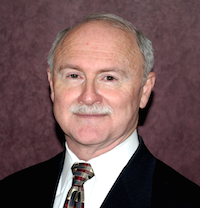
Safety is an expectation of residents and their families at senior living communities. The last thing one would expect is elderly residents being exposed to criminal activity.
Crime doesn’t disappear with age, however. Reports of increased criminal activity by individuals aged 65 or more years have surfaced recently. Several reasons for the mischief have been cited, including boredom and lack of adequate financial resources. A psychology professor at the Free University of Brussels who has studied criminal behavior among the elderly says that older people may commit crimes because they are lonely, whereas others are more aggressive in fulfilling social and economic needs than other generations.
Whatever the reason, the need for screening in the senior housing industry is important. Doug Fullaway, vice president of senior living business development at RealPage, says that senior living providers can help themselves by adopting resident screening processes common in the multifamily housing vertical.
As a senior living community owner, too, he personally has seen the damage control one property was forced through when police arrested older adults who were dealing drugs. Each had previous records, but the owners hadn’t screened them during the lease process.
“It’s not the easiest thing to fix,” Fullaway says. “It gets messy. It took a year to clean up.”
Identifying threats to community safety
 Fullaway (pictured, left) likens today’s need for screening to the evolution of wearing seat belts in cars. Years ago, seat belts were optional and an afterthought. Today, they are standard safety equipment on cars and save lives. Buckling up is now second nature.
Fullaway (pictured, left) likens today’s need for screening to the evolution of wearing seat belts in cars. Years ago, seat belts were optional and an afterthought. Today, they are standard safety equipment on cars and save lives. Buckling up is now second nature.
Historically, screening in seniors housing has taken a backseat in the leasing process. Fullaway believes the time has come to emphasize the practice, because it’s affordable and helps operators provide a safer living environment for residents as well as comfort for families.
“It’s about creating a safer environment,” he says. “The reality is, [seniors] are people. If you have a large number of people, there are bound to be one or two bad apples. It doesn’t take very many to cause a problem. And do I really want my mom living in a place where there is a sexual predator living down the hall?”
Database minimizes risk
Choosing residents for profitable occupancy requires comprehensive screening technology that balances risk to end-of-lease cost and protects from fair housing liability, Fullaway says. Resident screening features a fifth-generation empirical scoring engine that analyzes an applicant’s credit, criminal and rental history and delivers results quickly.
Some software providers maintain criminal and sex offender databases. For example, RealPage maintains what it says is the industry’s largest online criminal and sex offender database. Screening software providers should be able to do an exhaustive search of each and every jurisdiction with every scan, as well as conduct manual court searches.
These also should feature credit checks, including a nonsufficient funds search, to identify prospects who may have a history of fraudulent activity. And complete credit verification should be obtained through automatic searches of the top credit bureau closest to the property.
Screening costs versus clearing an incident
Screening makes sense, Fullaway says. The cost to run a background check pales in comparison to an incident for which thousands of dollars are needed to remedy a property’s reputation.
“The cost of preventing a serious problem is very low now,” he says. “You might go years and never have a problem. Then all of a sudden you have one, and when you have one, it’s a big problem, a serious problem.”
Screening at senior communities also is a value proposition for residents and families. It sends a message that operators are diligent about creating a living environment that’s safe and feels like home sweet home.
At the end of the day, potential residents are going to be more inclined to choose a property that screens applicants to ensure safety and peace of mind, Fullaway says. “It’s a cost-effective way to create a much safer environment,” he adds.
Tim Blackwell, who writes about the multifamily housing and transportation industries, is a writer for RealPage. RealPage provides services, screening and web-based property management software for the multifamily industry.




